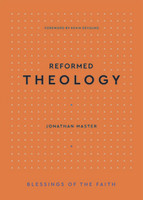
Reformed Orthodoxy in Scotland: Essays on Scottish Theology (1560-1775) (Denlinger)
Recent decades have witnessed much scholarly reassessment of late-sixteenth through eighteenth-century Reformed theology. It was common to view the theology of this period-typically labelled 'orthodoxy'-as sterile, speculative, and rationalistic, and to represent it as significantly discontinuous with the more humanistic, practical, and biblical thought of the early reformers. Recent scholars have taken a more balanced approach, examining orthodoxy on its own terms and subsequently highlighting points of continuity between orthodoxy and both Reformation and pre-Reformation theologies, in terms of form as well as content.
Until now Scottish theology and theologians have figured relatively minimally in works reassessing orthodoxy, and thus many of the older stereotypes concerning post-Reformation Reformed theology in a Scottish context persist. This collection of essays aims to redress that failure by purposely examining post-Reformation Scottish theology/theologians through a lens provided by the gains made in recent scholarly evaluations of Reformed orthodoxy, and by highlighting, in that process, the significant contribution which Scottish divines of the orthodox era made to Reformed theology as an international intellectual phenomenon.
Table of Contents:
Introduction - Carl Trueman, Westminster Theological Seminary, USA
Part 1: Early Reformed Orthodoxy (c.1560-c.1640)
1. Knox versus the Knoxians? Predestination in John Knox and Seventeenth-Century Federal Theology - Donald John MacLean, Wales Evangelical School of Theology, UK
2. Andrew Melville and Christian Hebraism: The Humanist Legacy of a Renaissance Scholar - Ernest R. Holloway III, Westminster Theological Seminary, USA
3. The Eternal Decree in the Incarnate Son: Robert Rollock on the Relationship between Christ and Election - Brannon Ellis, Acquisitions Editor for Lexham Press, USA
4. Where Was Your Church Before Luther? History and Catholicity in Early Seventeenth-Century Aberdonian Theology - Nicholas Thompson, University of Auckland, New Zealand
5. Alexander Henderson: Reformed Orthodoxy and Constitutional Crisis in Scotland - Donald Macleod, Free Church College, UK
6. Scottish Hypothetical Universalism: Robert Baron on God's Love and Christ's Death for All - Aaron Clay Denlinger, Reformation Bible College, USA
Part 2: High Reformed Orthodoxy (c.1640-c.1690)
7. Samuel Rutherford's Euthyphro Dilemma: A Reformed Perspective on the Scholastic Natural Law Tradition - Simon J. G. Burton, University of Warsaw, Poland
8. Samuel Rutherford on the Divine Origin of Possibility - Aza Goudriaan, University of the Free State, South Africa
9. Clavis Cantici: A 'Key' to the Reformation in Early Modern Scotland? - Guy M. Richard, Senior Minister of First Presbyterian Church, USA
10. Scotland and Saumur: The Intellectual Legacy of John Cameron in Seventeenth-Century France - Albert Gootjes, Calvin Theological Seminary, USA
11. John Calvin and John Brown of Wamphray on Justification - Joel R. Beeke, Puritan Reformed Theological Seminary, USA
Part 3: Late Reformed Orthodoxy (c.1690 onwards)
12. Thomas Halyburton and John Locke on the Grounding of Faith in Scripture - Paul Helm, Regent College, Canada
13. The Rational Defence and Exposition of Christianity: Thomas Blackwell and Scottish Orthodoxy in the Early Eighteenth Century - Richard A. Muller, Calvin Theological Seminary, USA
14. The Act or Habit of Faith? Alexander Comrie's Interpretation of Heidelberg Catechism Question 20 - Gerrit A. van den Brink, Evangelical Theological Faculty in Leuven, Belgium
Author
Aaron Clay Denlinger (PhD) is Professor of Church History and Historical Theology at Reformation Bible COllege in Sanford, Florida
Endorsements
“Aaron Denlinger has assembled an excellent team of international scholars to explore the insights of early modern Scottish Reformed Orthodox theology. Many are likely familiar with English and Continental voices from the period, but few know that Reformed Orthodoxy also spoke with a Scottish brogue but nevertheless had an influence well beyond the borders of Scotland. Anyone interested in the history of Reformed theology will want to read and study this excellent volume.” – J.V. Fesko, Westminster Seminary California, USA
“This book is a unique contribution to the growing research on Reformed Orthodoxy. When a group of the best experts in this field focus on the rich theological tradition of Scotland the result is stimulating source-based studies as we have it here.” – Herman Selderhuis, Theological University Apeldoorn, the Netherlands





